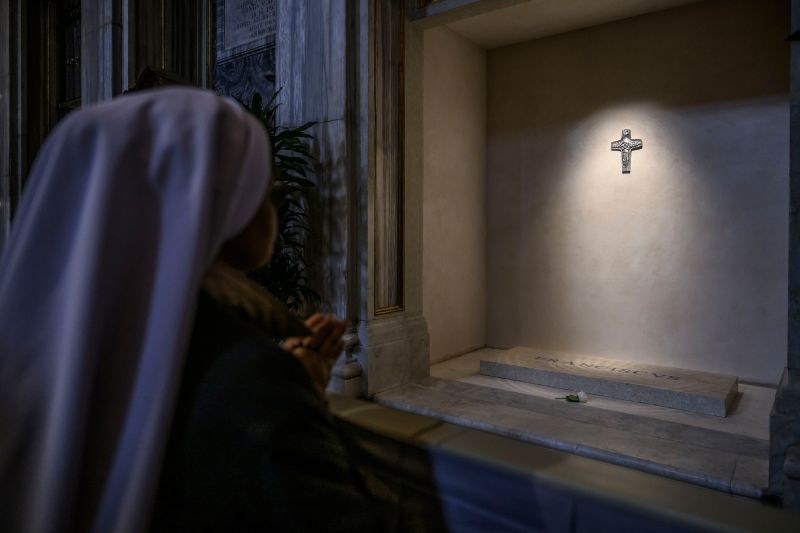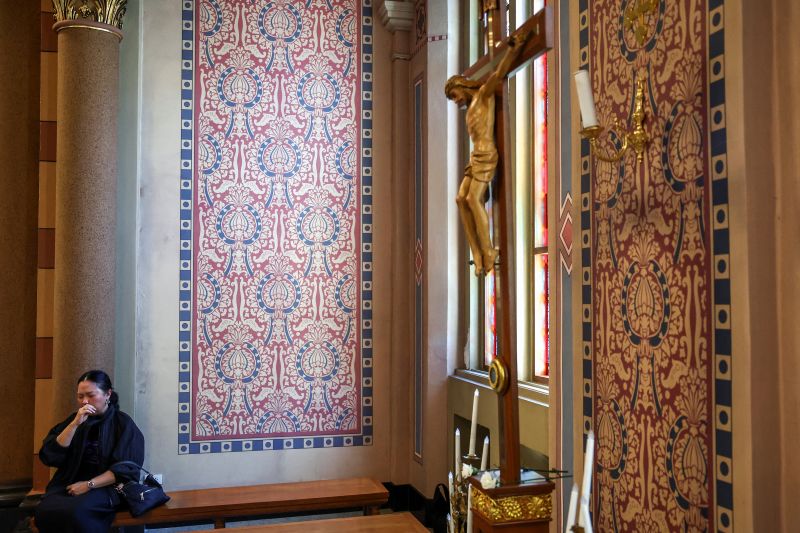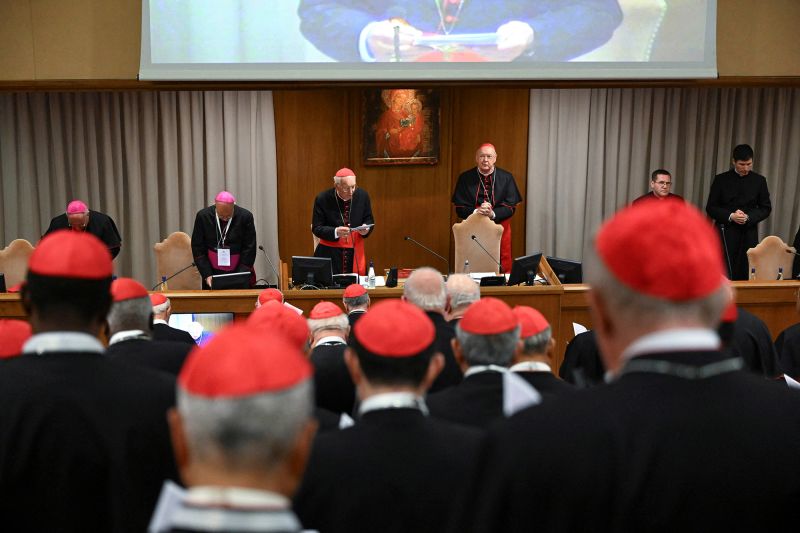Cardinals have chosen May 7 as the date to start conclave and elect a new leader for 1.4 billion Catholics around the world, the Vatican announced.

The date for the papal election was decided on Monday after cardinals held the first daily congregation since Pope Francis' funeral. General congregations are closed-door meetings which have been held frequently since Francis' death to discuss church matters and preparations for conclave.

Only cardinals under the age of 80 are allowed to vote in a papal election. There are currently 135 cardinals eligible to participate in the upcoming election. However, at least one cardinal has revealed he will not be in attendance.

Cardinal Antonio Cañizares Llovera, who previously served as Archbishop of Valencia between 2014 to 2022, has said he is unable to travel to the Vatican for health reasons.

It not yet clear exactly how many cardinals will be present when conclave gets underway on May 7. Vatican spokesman Matteo Bruni said Monday that so far more than 180 cardinals have arrived in Rome and took part in the meeting in the morning, of which just over 100 were cardinal electors.

Bruni said the cardinals discussed questions relating to the future of the church and the challenges it faces in the world today.

He added that Cardinal Reinhard Marx, Cardinal Luis Antonio Tagle and Cardinal Dominique Mamberti had been elected to help Cardinal Kevin Farrell, the Dublin-born cleric who became a naturalized American citizen who holds the position of "camerlengo" (or chamberlain). Farrell is tasked with "overseeing and administering the temporal goods and rights of the Apostolic See" following the death or resignation of a pope.

The congregations will continue daily, starting at 9 a.m. (3 a.m. ET) except for on May 1 and May 4.

Related article Conclave: A visual guide to the secretive process of choosing a new pope

On Monday afternoon, Cardinal Giovanni Angelo Becciu - who had previously claimed he could participate in conclave even though he is listed by the Vatican as a "non-elector" - withdrew his request to join the upcoming conclave, according to a report from Italian newspaper Corriere della Sera.

Becciu, once one of the most powerful figures in the Vatican, was ordered by Pope Francis in 2020 to resign the "rights and privileges" of a cardinal after he became embroiled in a Vatican financial scandal. The cardinal, who has always maintained his innocence, told a Sardinian newspaper last week that "there was no explicit will to exclude me from the conclave nor a request for my explicit renunciation in writing." Vatican spokeman Bruni said earlier on Monday that no decision had been made on Becciu's status.

The cardinal electors will vote for the next Bishop of Rome in a highly secretive ballot held in the Sistine Chapel, which was closed to the public on Monday in preparation for the balloting, according to the Vatican Museum website.

The last two conclaves - held in 2005 to elect Pope Benedict XVI and in 2013 to elect Pope Francis - lasted two days.

Before conclave begins on May 7, the cardinal electors will participate in a Eucharistic celebration known as the Mass Pro Eligendo Papa, before they proceed to the 16th-century chapel. There they will take an oath of secrecy before the Master of Pontifical Liturgical Celebrations proclaims "extra omnes," (meaning "Those who are extra, leave"). The moment will be the last time the cardinals are seen until the new pope is elected, which requires a two-thirds majority from the electors present.

Related article Who will be the next pope? Here are some possible candidates

Four out of five of the cardinals who will soon select the next pontiff owe their positions to Pope Francis. Of the 135 members of the College of Cardinals under the age of 80 who are eligible to appoint the next pontiff, Pope Francis installed 108. That means 80% of the votes cast in the upcoming conclave will be cast by cardinals elevated by Francis.

The conclave will be "one of the most diverse that we've had in the history of the church," Susan Timoney, a professor at the Catholic University of America in Washington DC, previously told CNN.

During his 12-year papacy, Francis appointed more than 20 cardinals from nations that had never previously had a cardinal, nearly all from developing countries, including Mongolia, Laos, Papua New Guinea and Mali.

Pope Francis, 88, died of a stroke and heart failure on Easter Monday. He was laid to rest on Saturday at the Basilica di Santa Maria Maggiore in a simple tomb as requested by the late pontiff, following a funeral Mass on the steps of the St. Peter's Basilica that drew heads of state, royalty and
